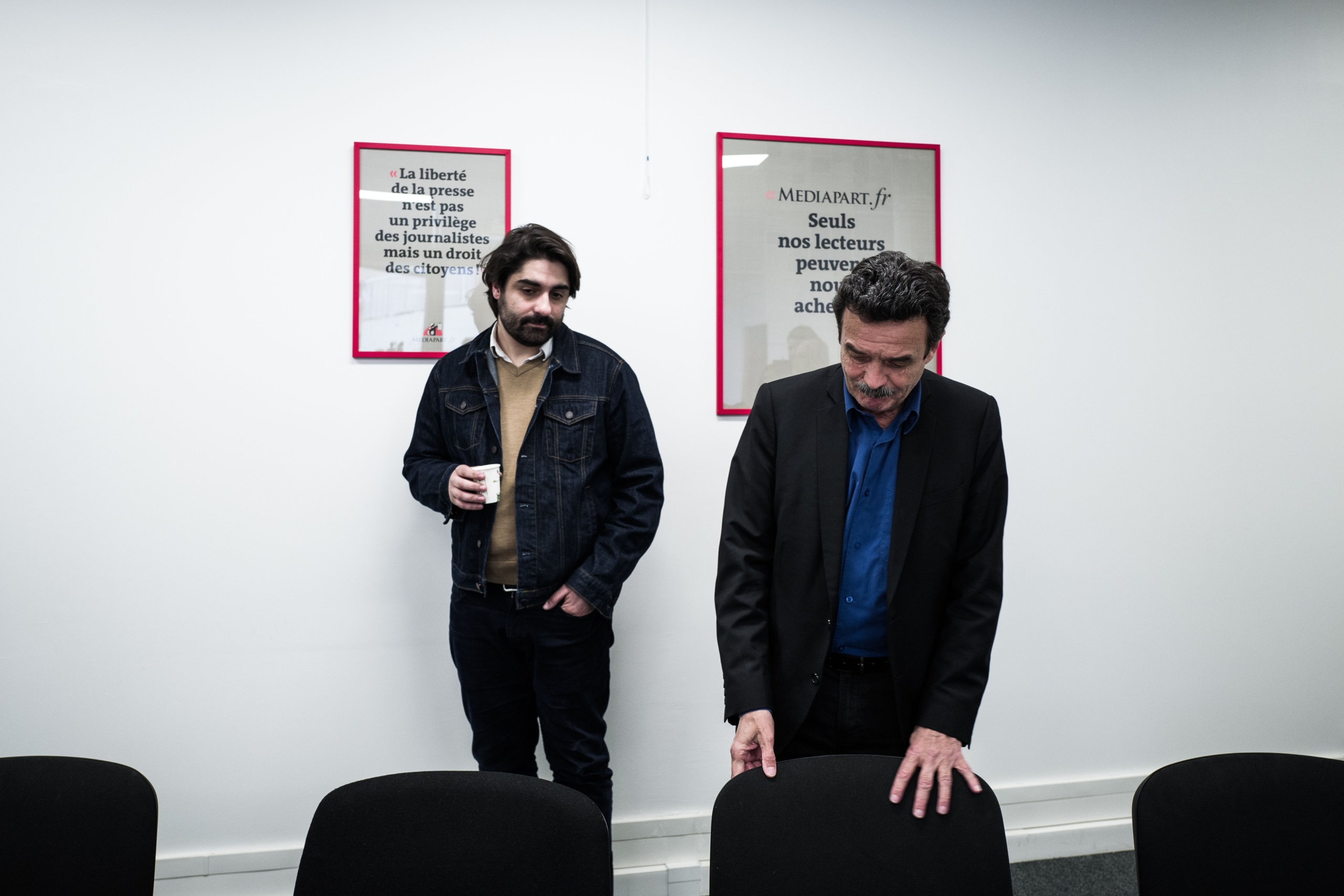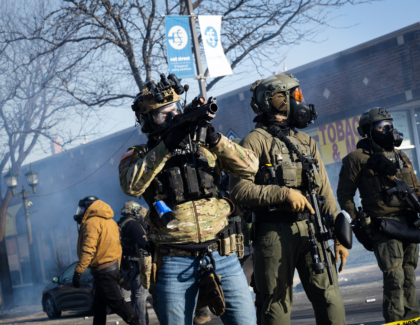Sign up for the daily CJR newsletter.
On the morning of February 4, staff members at Mediapart, the French independent investigative website, were just finishing an editorial meeting when the bell to their office rang. During the meeting, they had raised concerns about the recent shift taken by the French government to clamp down on the press’s right to inform and citizens’ right to protest.
When a reporter went to the door just after 11, he found two public prosecutors from the French Ministère Public—a branch of the judiciary similar to the Attorney General’s office and directly linked to the executive chamber—and three policemen. The officials demanded to search the newsroom as part of an investigation they had launched after a string of recent Mediapart stories. Mediapart refused, because the prosecutors didn’t have a warrant.
Edwy Plenel, the founder and publisher of Mediapart, calls the attempted raid “an attack on the free press,” and an unprecedented attempt by Emmanuel Macron to reveal Mediapart’s sources and seize documents and recordings. In a press conference with the Mediapart journalists, Christophe Deloire, Reporters Without Borders’ Secretary General, called the move “a freedom-destroying drift against the secrecy of sources.”
ICYMI: Headlines editors probably wish they could take back
The inquiry stemmed from stories Mediapart published last week about two former Macron senior security agents, Alexandre Benalla and Vincent Crase, who were indicted for beating up a young protester during the 2018 May Day demonstrations. The story relied on recordings and documents, given to Mediapart by anonymous sources, which revealed that Benalla and Crase conspired to hide evidence against them; that Benalla organized a security contract with a Putin- and mob-linked Russian oligarch; and that Benalla had committed perjury before the French Senate. Mediapart’s stories about Benalla, the last of which ran this past Friday, have thrust Macron into what could be a major scandal.
Since its founding in 2008, Mediapart has been a very influential voice in French investigative journalism. A digital-only publication, it has played a central role in the revelation and investigation of several major French scandals, including the Sarkozy-Gaddafi case, the Jerome Cahuzac Swiss account case, and the Lafarge payment of taxes to ISIS in 2013. This is not the first time the publication has received pushback after it published a story.
The public prosecutor opened the investigation because they believe the publication committed an “invasion of privacy” and “illicitly possessed technical devices allowing the interception of communications or conversations.” (These allegations were confirmed to CJR by the prosecutor’s office in an email.) Mediapart denies it recorded anyone or broke any laws, and reiterates that the information it used for the stories came from their sources.
Two hours before officials arrived at Mediapart, the investigative website received a separate inquiry from a judge, who is independent from the executive branch. That judge, according to Jean-Pierre Mignard, one of Mediapart’s lawyers, is running the investigation on the 2018 May Day events, including Benalla’s actions towards protesters.
“What surprises me is that these were two distinct and simultaneous judicial inquiries—one by the independent judge and the other by the state prosecutors,” Mignard says. Today, the publication handed over seven recordings which they previously published to the independent judge.
For Plenel, the prosecutor’s move is political, especially because President Macron has direct control over nominating the Paris public prosecutor and the prosecutors below him. The current prosecutor, Rémy Heitz, was directly chosen by Macron, who had previously rejected three names suggested by his Minister of Justice, Nicole Belloubet.
In front of the National Assembly, Belloubet said there was “no collusion with the judiciary,” and that she was “attached to the protection and respect of the sources.”
The problematic connection between the public prosecutor and the executive has long been a problem in France. “The relationship between the two undercuts the public prosecutor as a competent legal authority, according to a 2010 statement from the European Court of Human Rights.“
The attempted raid surprised Plenel, whose newspaper called for a vote in favour of the current president in the second round of his campaign against Marine Le Pen. Plenel made his intentions to fight back clear. “I said it before and I’ll say it again: I want to tell our sources they are safe,” he tells CJR. “We know how to protect them.”
According to Nicolas Hubé, an associate professor of political science and a political communication specialist at University Paris 1 Panthéon-Sorbonne, such raids are rare in France, especially after legislation to protect sources in France was passed in 2010. He notes an attempted raid on Le Canard enchaîné in 2007 for exposing a secret regarding the ongoing investigation into the Clearstream case, and one against the sports publication L’Equipe in 2005.
Macron said in a 2017 video address that journalists “have a problem. They’re interested way too much in themselves and not enough in the country.” Last week, the conservative weekly magazine, Le Point, revealed Macron’s intention to create structures financed by the state that would control public and private media outlets, allegedly to ensure journalistic neutrality and to check the information reported in the media. These plans have been widely discussed in the French press, with some seeing the move as an effort at potential government oversight.
Meanwhile, Yellow Vest protesters recently targeted the French press; several news outlets reported instances of assault and harassment towards journalists across the country. Last week, the local public radio station France Bleu Isère was partially burned down in an arson attack claimed by an anti-capitalist anarchist group.
ICYMI: Over the weekend, an obscure site’s explosive scoop dominated headlines
Has America ever needed a media defender more than now? Help us by joining CJR today.







